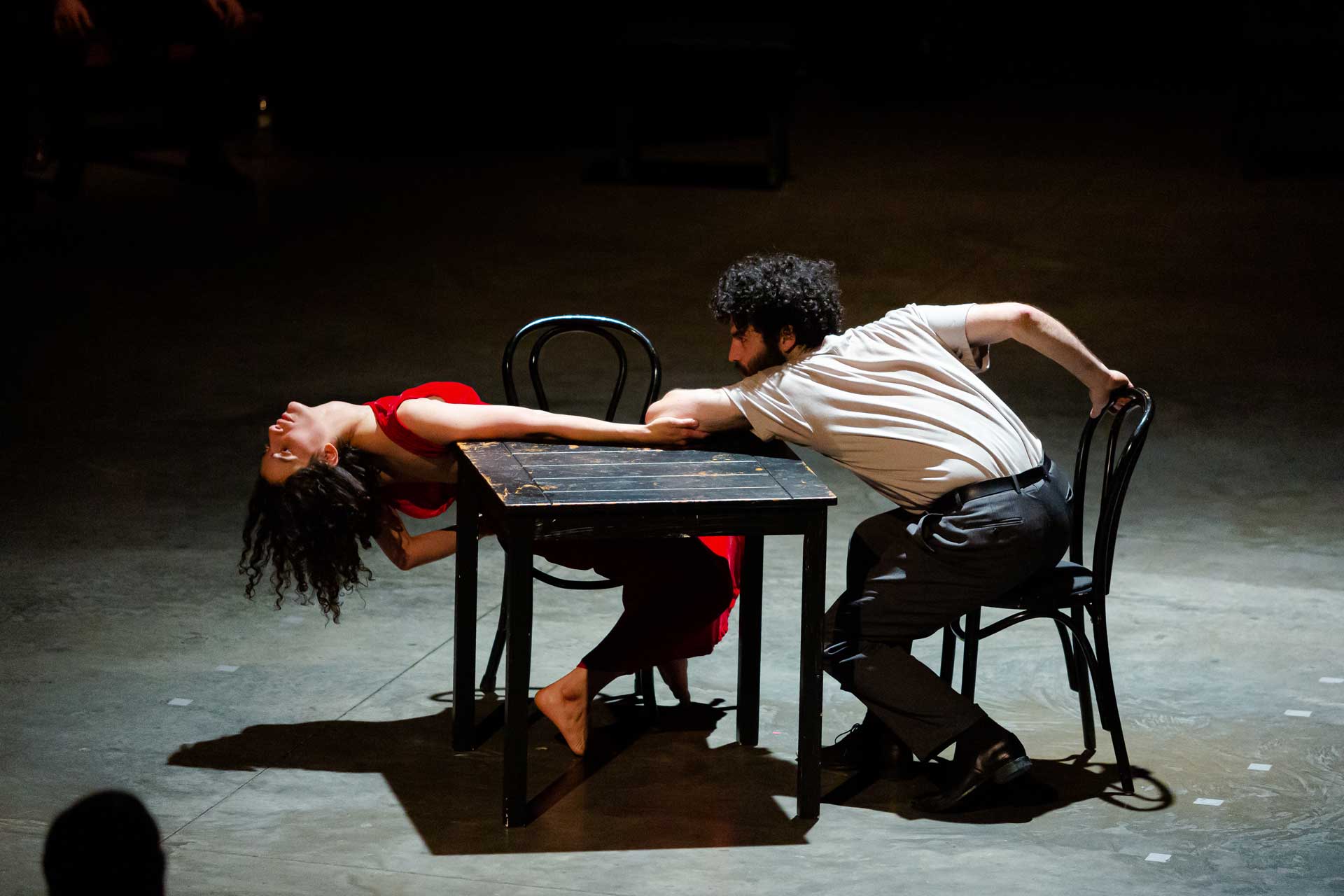
In response to Broken Theater
In response to Broken Theater
Papa would say The Theater was not a curse, but a responsibility.
I don’t know how many people owned it before us, or for how long, but I grew up knowing it would one day be mine. Papa promised. The feel of the crumbling brick on my fingertips was as familiar as the lines in my own hands.
I was Papa’s daughter, sure, but The Theater shared custody. My first taste of love was with that hollowed building; The Theater sheltered and entertained me, and I dreamed of the day I would take care of it in turn.
There were rules. I learned them the way other children learned prayers.
“Nothing in The Theater exists unless we order it to,” Papa said.
It was our job, every few weeks, to touch every single thing in the building. I would find each chair and press all of my weight into it, my tiny hands wrapping around the back while my feet dug into the seat. With tables, I would run my fingers along the edge, memorizing places where the wood chipped and where the paint faded. Then I would lean on it, palms flat and fingers splayed, feeling the smoothed surface push back against me. Stay, I would think. Be a table and stay.
There was a hideous portrait in the entryway of one of the old Directors. She had a crooked nose and thin lips mangled into a smile, wispy silver hair in a tight bun. Her skin was stretched taut over her bones like a shirt two sizes too small, making her expression seem manic in the dim light of the foyer. Papa let me hold it down, once. I was eight or nine, and had pressed my fingers as gingerly as possible on the gold-trimmed frame. “Stay,” I had said. “Stay, and be our painting.”
It was gone the next day.
The Theater knew what we wanted. Even if we didn’t say it out loud.
After the furniture and the rooms, Papa and I would take roll. The Actors needed to be held in place, too. Papa’s long fingers would dig into their shoulders, wrinkling the fabric of their blouses and suits, with a firm hold. Sometimes he would say it aloud. Sometimes he would only mouth it. “Stay.”
“Everything in The Theater exists until we let it Go,” Papa said. Rule number two sounded a lot like rule number one. I didn’t know what it meant until I was twelve, when I saw Papa let someone Go.
It was Kate. She was one of my favorite Actors. She floated through The Theater’s halls in a floor-length, deep red gown, her chin held high and her nose even higher. When she spoke, her words clanged to the ground, loud and sharp and sudden. She saved nasty words for everyone in The Theater except me. Her love meant more to me because it was so scarcely seen elsewhere. Her laugh was a secret only I knew the shape of, where the rest of the world was lucky to see her grimace.
Papa didn’t agree.
He had had one too many disagreements with Kate. One too many foul words shared. He looked at her with his brow furrowed, and said nothing. Kate didn’t notice it happening at first. With her eyes squeezed shut, she continued her tirade. “You’re the worst Director this Theater has ever seen,” she scowled. “Why did you even want us? You don’t host our shows! You won’t let in an audience! We are performers, with no one to perform to!”
Her feet had started to lift off the floor. The hem of her dress was hovering upwards. The bright red sleeves were pulling up at her arms, vibrant streamers of blood-red tugging her upwards.
“Do you expect me to perform for you alone? The way Ophelia does?” She spat. “I know what you do to her…” Her voice trailed off as she looked down. The floor was several feet away from her now. She was drifting upwards, feet first, into the ceiling. The darkness was thicker in the awnings of The Theater.
She watched the end approach with dull fascination. “Did you think to frighten me, Director?” she said, her voice quiet. “Did you think I would bend?”
The shadows wrapped around her ankles. She was disappearing into it. Up and up. The crimson dress began to meld into the black as it swallowed her whole. She glowered at Papa the entire time, daring him to stop.
He didn’t speak. The Theater knew what we wanted. Even if we didn’t say it out loud.
She said something at the end, when she was nothing more than a pair of lips in the dark. Her eyes settled on me. Her gaze was serene. I couldn’t hear, only watch, as her lips moved for the last time. It would be years before I realized what she had said.
Run.
“Nothing made in The Theater can exist outside of The Theater,” Papa said.
There was nothing I cared for outside of The Theater.
The village people, with their narrowed eyes and low voices, seldom had a kind word to spare for Papa or me. They must have been jealous. Their buildings were so narrow, so gray, so stiff. The Theater towered above them all, its arched roof scratching at the sky. None of them knew the wonderful things that could exist in The Theater, but they must have imagined. Only a princess could live in a house like that. And I was the lucky child who went there every day.


